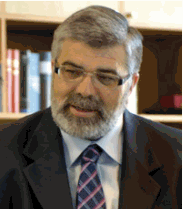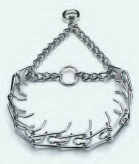 Minister
for Science Kim Carr
Minister
for Science Kim Carr
University Research Funding and the Choke Collar-

|
Editorial
- 30 June 2009 |
|
|
|
|
|
University Research Funding and the Choke Collar- |
|
In January 2001 Adrian Gibbs, wrote:
|
Australia needs an in-depth study of the structure of its science 'industry' to devise new ways that will foster the career and skill building of younger scientists, foster innovation, expose established scientists to selection based on their ability to do good science, not just build networks. There are lots of ways in which this could be achieved by small modifications of the existing system, and by diminishing the influence of those described by Prof Barry Ninham as the bureausaurs: 1)
Science priorities should be set by bodies that have a majority of
active working scientists / industrialists, etc not bureausaurs; 2)
The major funding bodies should abandon their present charade of
'external refereeing' and large selection panels, and replace them with
small paid selection panels of top scientists, who examine and compare
all competing proposals; one panel to assess the quality of the
proposals, another separate panel to assess the quality of past
endeavours; 3) A significant proportion of research funding should be reserved for young non-tenured scientists, and should be awarded to them without the requirement for the assured patronage of an older established person, and should be fully and independently funded for a minimum of 5 years. The older tenured staff would then have to compete for younger staff, who would be free to move if better scientific opportunities appeared elsewhere, or where required, for the optimal realization of their work. Younger scientists would in this way be setting some of the scientific agenda, and be able to build their own skills and careers. |
Alex Reisner
The Funneled Web